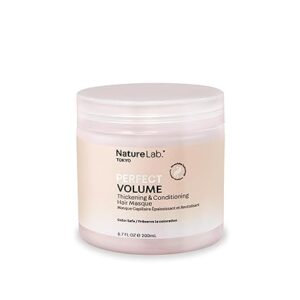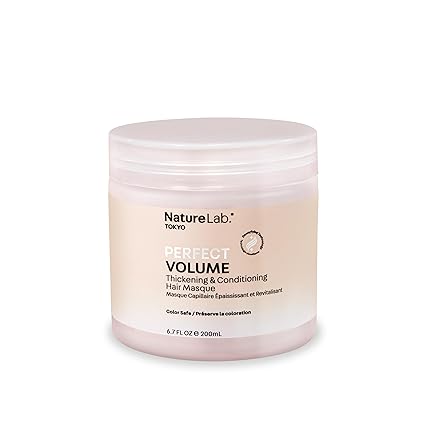Welcome to our latest blog post, where we dive deep into the world of flax—a tiny seed that’s been making waves in the wellness community. Talking about flaxseed and flaxseed oil, benefits, Some tips for consuming flaxseeds, golden and brown flaxseed and etc… Today, we’re unraveling the mysteries and marvels of flaxseed and flaxseed oil.
Table of Contents
ToggleFlaxseed:
Flaxseed is the whole seed of the flax plant. One can eat it whole, ground (as flax meal) or used in baking. oil extracted from flaxseeds, which is obtained through a cold-pressing process. It’s a concentrated source of ALA, the omega-3 fatty acid. But it doesn’t have the fiber and protein found in whole flaxseeds. Flaxseed oils contain lignans, but few of them; and therefore they are not a good source compared to whole or ground seeds. Frequently used as an additive or on salads, low smoke point so not suitable for high-temperature cooking.
Flaxseed Oil:
Its rich in dietary fiber, protein and lignans (a type of phytoestrogen that’s also an antioxidant). Also has alpha-linolenic acid (ALA), a form of omega 3 fatty acid, although in reduced concentration as compared to the oil. The whole seed must be crushed for your body to take advantage of the nutrients; uncooked seeds just pass right through you intact.
Difference between flaxseed and flaxseed oil:
Flaxseed is a small, fibrous seed with a crunchy texture and nutty flavor, whereas flaxseed oil is a smooth, liquid extract of the flaxseed with a milder taste. While both are high in omega-3 fatty acids, flaxseeds also contain dietary fiber, lignans, and protein, which are mostly lost in the oil extraction process. Flaxseeds can be added whole or ground to foods for texture and nutrition, while flaxseed oil is often used as a dietary supplement or a salad dressing ingredient due to its delicate flavor and low smoke point.
Flaxseed and flaxseed oil benefits:
Health benefits:
Research on flaxseed has highlighted several potential health benefits due to its rich nutritional profile. Here’s a summary of what scientific studies have found:
Rich in Omega-3 Fatty Acids:
Alpha-linolenic acid (ALA), also known as an omega-3 fatty acid, can be found in abundance in flaxseed. These are essential fats that have heart-healthy effects and are important for brain health.
Lignans:
Flaxseeds are high in lignans, which are plant compounds with antioxidant and estrogen properties. Lignans may help protect against certain types of cancer, particularly breast and prostate cancer, although more research is needed to confirm these effects.
Dietary Fiber:
Flaxseed is high in both soluble and insoluble fiber. This can help improve digestive health, reduce LDL cholesterol (the “bad” cholesterol), and help regulate blood sugar levels.
Cardiovascular Health:
Studies suggest that flaxseed can help reduce blood pressure and improve overall heart health. The omega-3 fatty acids, lignans, and fiber in flaxseed are thought to contribute to these benefits.
Cholesterol Reduction:
Consuming flaxseed may help lower total cholesterol and LDL cholesterol levels, reducing the risk of heart disease.
Blood Sugar Control:
Some research indicates that the soluble fiber in flaxseed can help improve blood sugar levels, beneficial for people with diabetes.
Inflammatory Diseases:
The ALA in flaxseed may help reduce inflammation associated with certain conditions, such as Parkinson’s disease and asthma.
Menopausal Symptoms:
There is some evidence that flaxseed can help reduce hot flashes and other menopausal symptoms, but results are mixed, and more research is needed in this area.
Weight Management:
Flaxseed’s high fiber content can promote feelings of fullness and may aid in weight management.

Nutritional Profile of Flaxseeds:
In terms of attitudes towards flaxseeds and their health effects, there are several schools. Vis-à-vis the nutritional benefits offered by flaxseeds, they are rich in ALA for cardiac health; lignans to prevent cancer and fiber to promote digestive health. Their rich nutrient content makes them an important complement to a healthy diet which can provide us with adequate quantities of the micronutrients necessary for optimal health.
In addition, flaxseed lignans’ antioxidant properties and anti-cancer effects suggest their role in health promotion. In addition to their numerous health benefits, flaxseeds also provide plant-based protein, vitamins and minerals that contribute a useful ingredient for various dietary needs. Throughout its history flaxseeds have been used in many different cultures, and people still seem to find them extremely valuable as a functional food. But the cautions regarding flaxseeds are that in some people they can cause indigestion if taken in large quantities.
Because flaxseeds have a high fiber content, it is believed that eating large amounts of them can cause abdominal bloating and flatulence. Consuming flaxseeds should be done moderately, and intake must build up gradually so that the body can adapt to its fiber content. Flaxseeds also provide a vegetable source of omega-3 fatty acids, but people should remember that the plant ALA these contain is not necessarily as effective as marine sources like fish oil. ALA is a precursor to other omega-3 fatty acids, but its conversion in the body may be hindered by certain genetic variations or health conditions. Those who need higher levels of these essential fatty acids may have to supplement with marine-based sources.
General Recommendations:
- Moderation: Like any food, flaxseeds should be consumed in moderation as part of a balanced diet.
- Hydration: Increasing fluid intake when adding flaxseeds to the diet can help mitigate digestive side effects.
- Consultation with Healthcare Providers: Especially for those who are pregnant, breastfeeding, or on medication, it’s important to consult a healthcare provider before significantly changing flaxseed consumption.
Some tips for consuming flaxseeds:
Incorporating flaxseeds into your diet can be a healthy choice, but it’s important to do it correctly to maximize their benefits and minimize potential side effects. Here are some tips for consuming flaxseeds:
Start Slowly:
If you’re new to eating flaxseeds, start with a small amount and gradually increase it. This can help your digestive system adjust to the high fiber content.
Grind Them:
Whole flaxseeds can pass through your digestive tract without being broken down, which means you might not get all the benefits. Grinding them into meal or powder makes it easier for your body to absorb the nutrients.
Store Properly:
Ground flaxseeds can go rancid quickly due to their high oil content.Store them in a hermetically sealed compartment in the fridge or cooler to broaden their time span of usability.
Stay Hydrated:
Due to their high fiber content, it’s important to drink plenty of water when consuming flaxseeds to prevent constipation.
Cooking and Baking:
You can add ground flaxseeds to smoothies, yogurt, oatmeal, soups, and salads. They can also be used in baking – as a partial substitute for flour or as an egg replacement (1 tablespoon of ground flaxseed with 3 tablespoons of water equals one egg).Flaxseeds have a nutty flavor, making them a versatile ingredient in many recipes. Experiment with them in different dishes.
Flaxseed Oil:
If you prefer flaxseed oil, remember it’s not suitable for cooking at high temperatures. Instead, use it as a dressing for salads or add it to smoothies.
Moderation:
As with any food, consume flaxseeds in moderation. A typical serving size is about 1-2 tablespoons of ground flaxseed per day.
Check for Allergies:
If you have never had flaxseeds before, start with a very small amount to ensure you don’t have an allergic reaction.
Consult Healthcare Providers:
If you’re taking medications, particularly blood thinners or blood sugar medications, or if you have a health condition, consult your doctor before adding flaxseeds to your diet. This is especially important for pregnant or breastfeeding women.
Brown and golden flaxseeds:
Brown and golden flaxseeds, while slightly different in color, are very similar in terms of their nutritional content and health benefits. However, there are a few minor differences that might influence your choice:
Nutritional Content:
Both brown and golden flaxseeds are excellent sources of alpha-linolenic acid (ALA), a type of omega-3 fatty acid. They are also high in fiber, lignans, and protein. The nutritional differences between the two types are minimal and generally not significant enough to impact your health in different ways.
Taste and Texture:
Some people find that golden flaxseeds have a slightly milder, nuttier flavor compared to brown flaxseeds. The texture of both is similar, especially when ground, but the slight difference in taste can be a deciding factor for those who are sensitive to flavor nuances in their food.
Availability and Price:
Golden flaxseeds are often more expensive and can be harder to find than brown flaxseeds. This is primarily due to the golden variety being less common and having a slightly more appealing appearance, which can influence consumer preference and market demand.
Use in Recipes:
The choice between brown and golden flaxseeds can also depend on the visual appearance of the final dish. Golden flaxseeds, being lighter in color, might be preferred in lighter-colored foods, like white bread, muffins, or smoothies, where a darker seed might be more noticeable.
Shelf Life:
Both brown and golden flaxseeds have similar shelf lives. They contain high levels of natural oils, which can cause them to go rancid. It’s important to store both types in a cool, dark place, ideally in the refrigerator or freezer, especially after they’ve been ground.
Health Benefits:
The health benefits of brown and golden flaxseeds are essentially the same. Both types provide cardiovascular benefits, support digestive health, and may help in regulating blood sugar levels and reducing inflammation.
Key benefits flaxseed oil for your hair:
- Rich in Omega-3 Fatty Acids: Flaxseed oil is high in omega-3 fatty acids, which are known to nourish the hair follicles. Omega-3s can help improve hair strength and reduce dryness of the scalp.
- Promotes Hair Growth: The nutrients in flaxseed oil can help promote a healthy scalp, which is essential for hair growth. Omega-3 fatty acids, in particular, are known to be beneficial for hair growth.
- Improves Hair Elasticity: Flaxseed oil can improve the elasticity of hair, reducing the risk of breakage.This is especially gainful for those with dry or fragile hair.
- Moisturizes the Scalp: It can be used as a natural moisturizer for the scalp, helping to combat dryness, flakiness, and dandruff. A healthy, moisturized scalp supports healthy hair growth.
- Adds Shine: Regular use of flaxseed oil can add shine and lustre to your hair, making it look healthier and more vibrant.
- Reduces Inflammation: If you have a scalp condition that involves inflammation (like eczema or dandruff), the anti-inflammatory properties of flaxseed oil might help in soothing the scalp.
- Antioxidant Properties: Flaxseed oil contains antioxidants which can help protect the scalp and hair from environmental stressors like pollution and UV rays.
How to Use Flaxseed Oil for Hair:
- You can apply flaxseed oil directly to your hair and scalp. Massage it in, leave it for a few hours or overnight, and then wash it out with your regular shampoo.
- Mix flaxseed oil with other beneficial ingredients like coconut oil or honey to create a nourishing hair mask.
- Consuming flaxseed oil as a dietary supplement can also contribute to overall hair health from the inside out.
- Some hair care products include flaxseed oil. Using these can be an easy way to incorporate flaxseed oil into your hair care routine.
While flaxseed oil can offer several benefits for hair health, results can vary from person to person. It’s also a good idea to combine topical treatments with a balanced diet for the best overall hair health.
Flaxseed oil benefits for skin health:
- Moisturizing Effect: The omega-3 fatty acids in flaxseeds can help keep the skin hydrated, making it appear smoother and more radiant. This can be especially advantageous for those with dry skin.
- Reduces Inflammation: Omega-3 fatty acids and lignans have anti-inflammatory properties, which can help in reducing skin redness, irritation, and inflammation. Psoriasis, eczema, and acne are just a few of the conditions that can benefit from this.
- Improves Skin Elasticity: The essential fatty acids in flaxseeds can help improve the elasticity of the skin, reducing the appearance of fine lines and wrinkles and promoting a more youthful look.
- Protects Against Environmental Damage: Flaxseeds contain antioxidants, which protect the skin from environmental stressors like pollution and UV radiation that can lead to premature aging.
- Promotes Healing: The nutrients in flaxseeds can aid in the skin’s healing process, helping to repair skin damage more quickly.
- Balances Oil Production: For those with oily skin, flaxseeds can help in regulating the production of sebum, potentially reducing the occurrence of acne.
How to Use Flaxseeds for Skin:
- Ground flaxseeds can be used in homemade face masks. They can be mixed with ingredients like honey, yogurt, or oatmeal for a nourishing skin treatment.
- Applying flaxseed oil directly to the skin or adding it to your skincare products can provide direct nourishment. It’s especially good for dry skin.
- Including flaxseeds in your diet can improve skin health from the inside. You can add ground flaxseeds to smoothies, salads, or yogurt.
- Boiling whole flaxseeds in water creates a thick gel that can be used as a natural skin moisturizer or a soothing agent for irritated skin.
Potential Side Effects of Flaxseeds
- Trace Amounts of Cyanide: Flaxseeds contain trace amounts of cyanogenic glycosides, which can release cyanide when metabolized. However, the levels in flaxseeds are very low, and the body can detoxify these small amounts. Cooking flaxseeds can destroy these compounds.
- Pregnancy and Breastfeeding: Due to hormonal effects, it’s advised to be cautious with flaxseed consumption during pregnancy and breastfeeding. Some studies suggest a potential link between flaxseed oil and an increased risk of premature birth, but more research is needed for definitive conclusions.
- Digestive Effects: Flaxseeds can cause digestive side effects like diarrhea or, conversely, constipation if not enough fluids are consumed. They should be introduced gradually into the diet to allow the digestive system to adjust.
- Interactions with Medications: Flaxseeds can interact with certain medications, including blood thinners and diabetes medications, due to their blood-sugar-lowering and blood-thinning properties.
- Allergic Reactions: Although rare, some people might be allergic to flaxseeds.
Conclusion:
Flaxseeds are a good source of nutrients such as ALA and lignans. With such renown, it’s not surprising that they have been recognized as having a functional food effect. Though worries are there (digestive discomfort, for exemple, or limited conversion of ALA into other omega-3 fatty acids), the benefits to health from flaxseed far outweigh them. Thus they make a worthwhile addition to any healthy diet.









